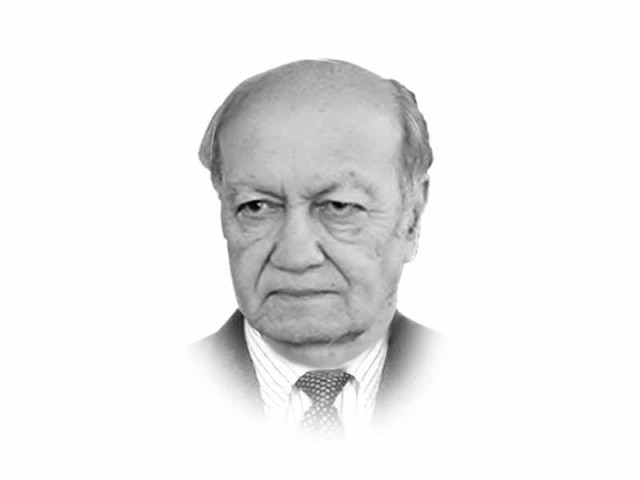March toward democracy
Poor governance, corruption and uneasy civil-military relations continue to retard progress in Pakistan.

Turkey has a long history of authoritarian governments going back to Ottoman times. However, it experienced a radical secular revolution under Mustafa Kemal Ataturk, which facilitated the creation of strong democratic institutions over the long-term despite numerous military coups. The Justice and Development party (AKP) of Turkey, under Recep Tayyip Erdogan’s dynamic leadership through consistent good performance has asserted its supremacy and control over military institutions. It was able to change the Constitution against fierce opposition from the military. Turkey, once considered the sick nation of Europe, is the envy of many European countries today for its high economic growth, political stability and relations with the international community. Despite the fact that the AKP is an Islamist party, it has maintained a secular constitution while imbibing Muslim values.
Turkey’s high economic growth owes also to Ataturk who laid the foundations of universal education and academic excellence. Consequently, 98 per cent of the population is literate in which women are equal counterparts. On the contrary, in Pakistan there has hardly been any investment in education. On the flip side, the pro-Islamist Turkish government tends to be no less authoritarian. Detractors of the government feel that the pendulum has swung too far with military leaders and journalists being jailed on flimsy pretexts.
Egypt, once ruled by Turks, has known almost nothing but military rule since King Farouk I was deposed. The 29-year-long rule under Hosni Mubarak and earlier, under Anwar Sadat and Gamal Abdel Nasser never allowed the emergence of a genuine political force. The killing of president Anwar Sadat in 1981 by Islamist officers bred distrust between religious parties such as the Muslim Brotherhood (MB) and the military and provided the latter an opportunity to suppress religious parties. The MB, however, survived and spread its tentacles under the garb of social and cultural services. The newly-elected MB president, Mohamed Morsi, is only now defining the military-civilian relationship; the question is whether the president will win confidence across the board, especially of minorities or take Egypt toward a theocratic state.
There is no comparable institutional secular grounding in Egypt, as was the case with Turkey. It is the Egyptian military which, through undemocratic means like dissolving the parliament, suspending the Constitution, stripping powers of the president and setting up the military council is trying to balance the growing power of the MB.
In all three countries, armies are likely to grow more religious and conservative, reflecting the societies around them. It has to be seen what ramifications for democracy in all three it would have in the long-term. While its military is deeply entrenched in every walk of life and bringing Egypt back to a normal state may take years, the process has begun and the MB is expected to stand up to them. Contrary to what Time Magazine said in its latest edition, there is some optimism that Egypt’s revolution will pull through; people are saying ‘we know how to find Tahrir square’, meaning that if things go wrong, they’ll be back protesting to set things right.
Pakistan is bereft of capable civil leadership but its military is reluctant to assume political leadership due to the changed internal and external situation and the track record of military rule. The role of Islam in politics also remains unclear and radical Islam remains the greatest threat to state security. Nonetheless, in comparison to Egypt’s authoritarian past, Pakistan had a much more open society. However, poor governance, corruption and uneasy civil-military relations continue to retard progress.
Published in The Express Tribune, July 10th, 2012.















COMMENTS
Comments are moderated and generally will be posted if they are on-topic and not abusive.
For more information, please see our Comments FAQ